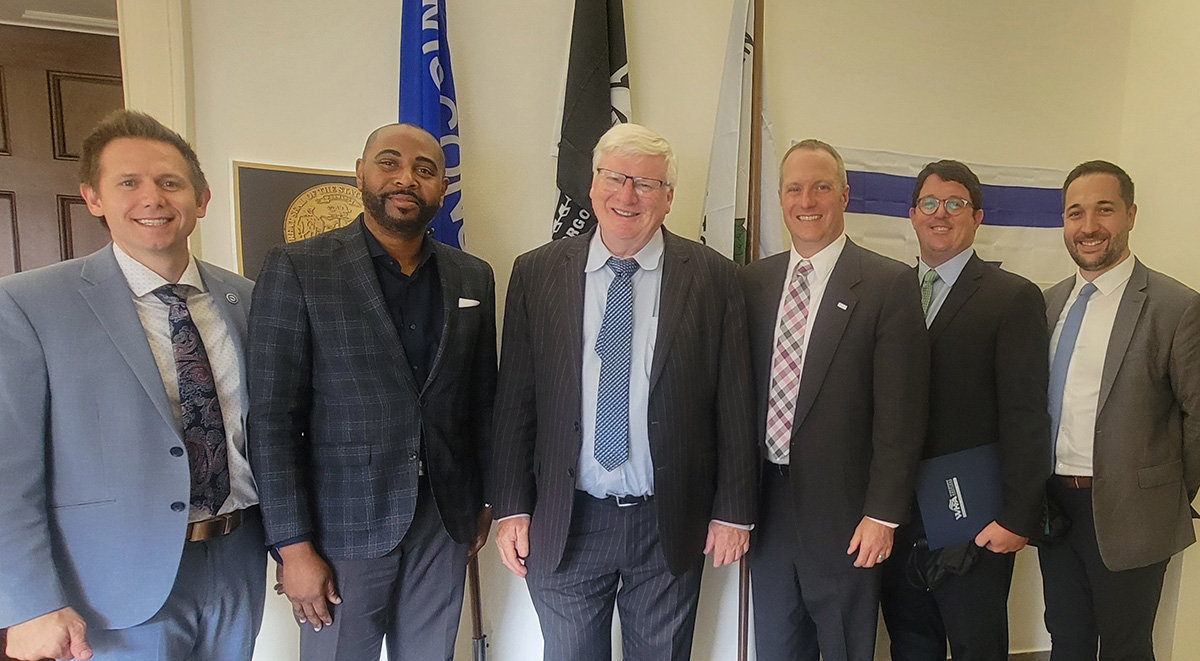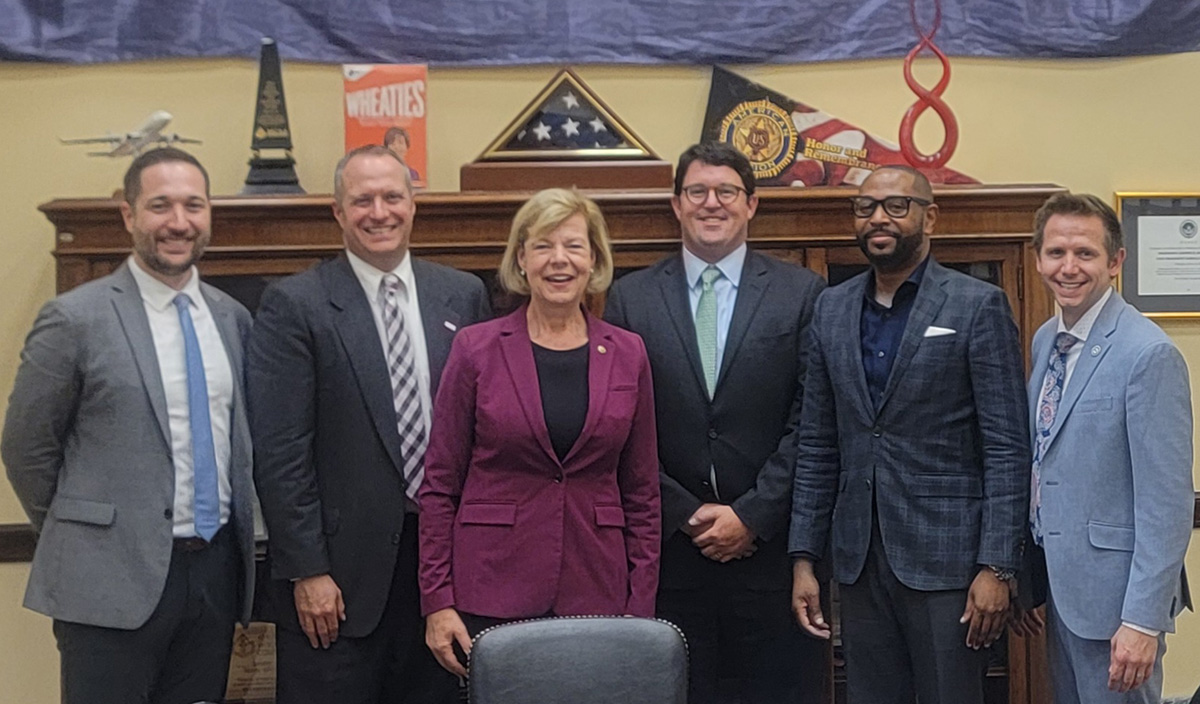WHA was back in Washington, DC on Sept. 18 with leaders from Wisconsin hospitals and health systems to visit Wisconsin's Congressional Delegation, reminding them of important health care priorities that need action before the end of the year.
Joining meetings with members of Wisconsin's Congressional Delegation were Jim Nelson, SVP/CFO, Fort HealthCare; Brad Wolters, director of federal government relations, Marshfield Clinic Health System; Jeremy Levin, director of advocacy, Rural Wisconsin Health Cooperative; Lindsay Punzenberger, director of federal government relations, Children's Wisconsin; Ben Van Pelt, director of government affairs, SSM Wisconsin; Reggie Newson, chief community impact and advocacy officer, Ascension Wisconsin; and Jon Hoelter, vice president of federal and state relations, WHA.
 WHA and members visit Rep. Grothman (center).
WHA and members visit Rep. Grothman (center).
With the recent news that Johnson and Johnson is attempting to move two prescription drugs from an up-front discount to a rebate model, WHA urged Wisconsin House members to sign onto
a bipartisan dear colleague letter from members of the House of Representatives expressing their significant concerns of how this illegal decision could upend the 340B program and greatly increase upfront drug costs for hospitals. WHA also
continued to urge for legislation that would resolve the issue of drug companies denying discounts at community contract pharmacies and pharmacy benefit managers pocketing the savings intended for safety-net health care providers.
 WHA and members with Sen. Tammy Baldwin.
WHA and members with Sen. Tammy Baldwin.
In addition to 340B, WHA members pushed for Wisconsin's Congressional Delegation to sign on to legislation that would help
streamline the prior authorization process in Medicare Advantage. The
Improving Seniors Timely Access to Care Act of 2024 has already been cosponsored by Representatives Pocan and Moore, and WHA urged the rest of the Wisconsin Congressional Delegation to cosponsor this legislation that would help establish standardized electronic prior authorization for Medicare Advantage (MA) plans while also increasing transparency around health insurer MA denials.
Lastly, WHA's health care advocates reminded lawmakers of the need to
extend critical health care programs that expire at the end of the year, including:
- Telehealth waivers - Prior to the COVID-19 pandemic, Medicare did not reimburse for telehealth delivered to a patient's home. The patient was required to be seen at a health care facility, and even then, Medicare would only reimburse if that facility was in a rural, health professional shortage area. Without an extension of these waivers, Medicare would revert to that policy.
- Hospital at Home - CMS authorized the Acute Hospital Care at Home program to expand access to care during the COVID-19 pandemic. The program allows people with low acuity conditions to receive a hospital level of care equivalent to an inpatient stay in the comfort of their own home along with daily visits by nurses and telehealth visits from physicians. It has been an important tool for hospitals to increase capacity given the continued challenges of finding post-acute care placements which are continuing to create bottlenecks in the health care system.
- Medicare-Dependent (MDH) and Low-Volume Adjustment Hospitals (LVH) - Wisconsin has approximately 16 "tweener" hospitals that are too large to be considered critical access hospitals but also too small to have the volumes necessary to offset Medicare and Medicaid losses. These MDH and LVH hospitals receive slightly enhanced Medicare reimbursement rates to help offset their Medicare losses. Losing these programs would amount to nearly $230 million in cuts to these hospitals over the next 10 years.
WHA highlighted the importance of not using cuts such as site-neutral payments to hospitals to help pay for these programs, especially considering the challenging financial environment for hospitals, where 40% of Wisconsin hospitals experienced negative margins in 2022, the most recent year of data available.